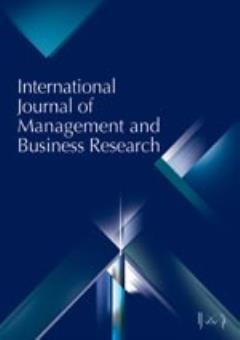The Moderating Role of Human Resources Strategic Role in Human Resources Outsourcing Decision at Telecommunications Sector
محورهای موضوعی : Business Administration
Dana__MHD Dib__Alkwaify Dana__MHD Dib__Alkwaify
1
![]() ,
Ayman Dayoub
2
,
Mohsen__shafiei__Nikabadi Mohsen__shafiei__Nikabadi
3
,
Ayman Dayoub
2
,
Mohsen__shafiei__Nikabadi Mohsen__shafiei__Nikabadi
3
1 - Damascus university
2 - Damascus university
3 - Semnan University
کلید واژه: Hierarchical, Multiple Regression, Transaction Cost Theory, Resource-Based View, Asset Specificity,
چکیده مقاله :
Purpose: The purpose of this article is to investigate and comprehend the moderated impact of the strategic function of human resources in the relationship between Asset Specificity and the decision to outsource human resources in Syria's telecommunications sector. The study seeks to analyse how the relationship between these two variables is influenced and how the presence of the strategic role of human resources can affect this relationship. Design/methodology/approach: In order to analyze the intricate link between various components, this study used a multi-theoretical framework that incorporated the Transaction Cost Economics and the Resource-Based View theories. To do this, the researcher sent electronic questionnaires to human resources employees in Syrian telecoms companies. The researcher then conducted a thorough survey of the statistical population. A total of 150 questionnaires were found, which corresponds to a 62.5% response rate from the sample population. The researcher used hierarchical multiple regression analysis and the SPSS program to statistically test the hypotheses. Findings: The extent of outsourcing human resources was found to be negatively impacted by asset specificity, according to the study. Additionally, it was discovered that the strategic role of human resources had a moderating effect, strengthening and intensifying the link between Asset Specificity and the degree of outsourcing and so boosting its explanatory power. Based on these findings, the report offered a number of suggestions for Syria's telecom industry. It is important for decision-makers to be aware of the level of asset specificity and how it affects outsourcing choices.
Purpose: The purpose of this article is to investigate and comprehend the moderated impact of the strategic function of human resources in the relationship between Asset Specificity and the decision to outsource human resources in Syria's telecommunications sector. The study seeks to analyse how the relationship between these two variables is influenced and how the presence of the strategic role of human resources can affect this relationship. Design/methodology/approach: In order to analyze the intricate link between various components, this study used a multi-theoretical framework that incorporated the Transaction Cost Economics and the Resource-Based View theories. To do this, the researcher sent electronic questionnaires to human resources employees in Syrian telecoms companies. The researcher then conducted a thorough survey of the statistical population. A total of 150 questionnaires were found, which corresponds to a 62.5% response rate from the sample population. The researcher used hierarchical multiple regression analysis and the SPSS program to statistically test the hypotheses. Findings: The extent of outsourcing human resources was found to be negatively impacted by asset specificity, according to the study. Additionally, it was discovered that the strategic role of human resources had a moderating effect, strengthening and intensifying the link between Asset Specificity and the degree of outsourcing and so boosting its explanatory power. Based on these findings, the report offered a number of suggestions for Syria's telecom industry. It is important for decision-makers to be aware of the level of asset specificity and how it affects outsourcing choices.


